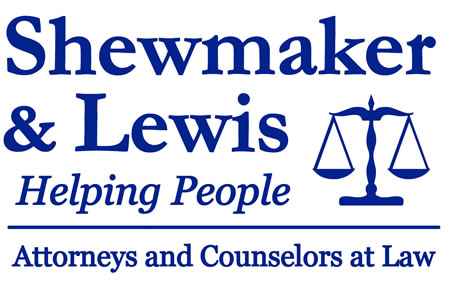The Chief Justice of the Georgia Supreme Court has declared a judicial emergency limiting judicial operations during the Covid-19 Pandemic. What does this mean for you if you have a case pending or your were thinking about filing a case? It means that at this time, some until April 13th, others for longer, Courts will only be hearing matters that are essential or an emergency. Below is a copy of the Chief Justice’s Order.
Additionally, some judges, on a case by case basis, are conducting hearings virtually, via web based applications such was Zoom or Webex. If you have questions about your specific case or are thinking about filing and want to know how that might work, please contact us. We will continue to be open and available during the Pandemic to assist with your legal needs. Please note that we are taking precautions to protect our employees and our clients from transmission of the virus, so please call or email first!
Check back here often and on our Shewmaker & Lewis Facebook page for updates.
ORDER DECLARING STATEWIDE JUDICIAL EMERGENCY
WHEREAS, the Governor has determined that a Public Health State of Emergency exists in the State of Georgia due to the spread of the Coronavirus/COVID-19, and whereas that state of emergency constitutes a “judicial emergency” pursuant to OCGA § 38-3-60 et seq., see OCGA § 38-3-60 (2).
Now therefore, pursuant to OCGA § 38-3-61, the Honorable Harold D. Melton, Chief Justice of the Supreme Court of Georgia, DOES HEREBY ORDER AND DECLARE a Statewide Judicial Emergency in the State of Georgia. The nature of this emergency is the continued transmission of Coronavirus/COVID-19 throughout the State and the potential infection of those who work in or are required to appear in our
courts.
Thus, in order to protect the health, safety, and liberty of all citizens in this State, the undersigned hereby declares a Statewide Judicial Emergency affecting all courts and clerk’s offices in the State as it relates to all judicial proceedings.
To the extent feasible, courts should remain open to address essential functions, and in particular courts should give priority to matters necessary to protect health, safety, and liberty of individuals. Essential functions are subject to interpretation; however, some matters that fall into the essential function category are: (1) where an immediate liberty or safety concern is present requiring the attention of the court as soon as the court is available; (2) criminal court search warrants, arrest warrants, initial appearances, and bond reviews; (3) domestic abuse temporary protective orders and restraining orders; (4) juvenile court delinquency detention hearings and emergency removal matters; and (5) mental health commitment hearings.
In addition, trials in any criminal case for which a jury has been empaneled and the trial has commenced as of the date of this order shall continue to conclusion, unless good cause exists to suspend the trial or declare a mistrial. The decision whether to suspend a criminal trial or declare a mistrial rests with the judge presiding over the case.
To the extent court proceedings are held, they should be done in a manner to limit the risk of exposure, such as by videoconferencing, where possible.
Pursuant to OCGA § 38-3-62, during the period of this Order, the undersigned hereby suspends, tolls, extends, and otherwise grants relief from any deadlines or other time schedules or filing requirements imposed by otherwise applicable statutes, rules, regulations, or court orders, whether in civil or criminal cases or administrative matters, including, but not limited to any: (1) statute of limitation; (2) time within which to issue a warrant; (3) time within which to try a case for which a demand for speedy trial has been filed; (4) time within which to hold a commitment hearing; (5) deadline or other schedule regarding the detention of a juvenile; (6) time within which to return a bill of indictment or an accusation or to bring a matter before a grand jury; (7) time within which to file a writ of habeas corpus; (8) time within which discovery or any aspect thereof is to be completed; (9) time within which to serve a party; (10) time within which to appeal or to seek the right to appeal any order, ruling, or other determination; and (11) such other legal proceedings as determined to be necessary by the authorized judicial
official.
This Statewide Judicial Emergency shall terminate on April 13, 2020, at 11:59 p.m., unless otherwise extended.
Should the state of emergency extend beyond the period indicated above or should the nature of the emergency otherwise require modification, a determination of available alternative remedies for the conduct of court business will be made as necessary, and a corresponding order will be entered and distributed in accordance with Georgia law.
IT IS FURTHER ORDERED, pursuant to OCGA § 38-3-63, that notice and service of a copy of this Order shall immediately be sent to the judges and clerks of all courts in this State and to the clerk of the Georgia Court of Appeals, such service to be accomplished through means to assure expeditious receipt, which include electronic means; and
IT IS FURTHER ORDERED that notice shall also be sent to the media, the State Bar of Georgia, and the officials and entities listed below
and shall constitute sufficient notice of the issuance of this Order to the affected parties, counsel for the affected parties, and the public.
IT IS SO ORDERED this 14th day of March 2020
Chi0ef Justice Harold D. Melton Supreme Court of Georgia
